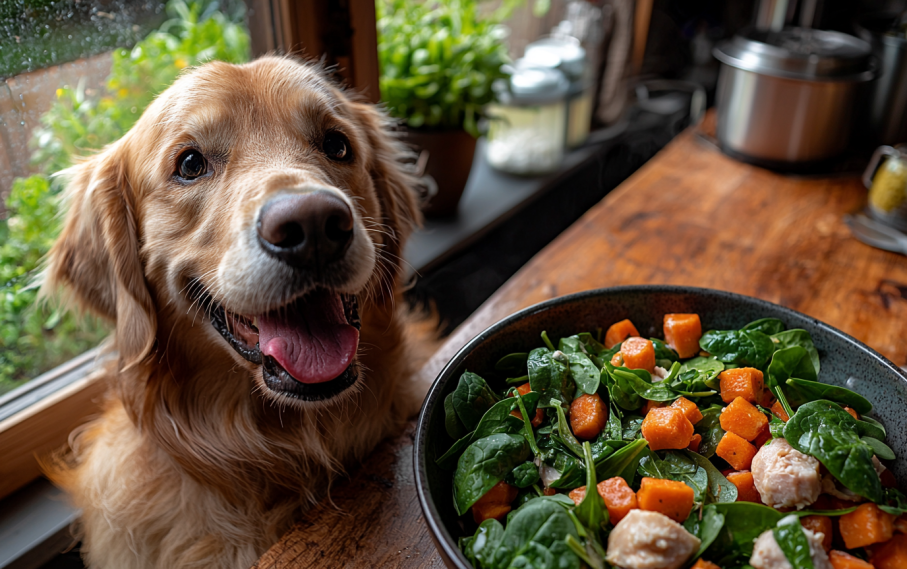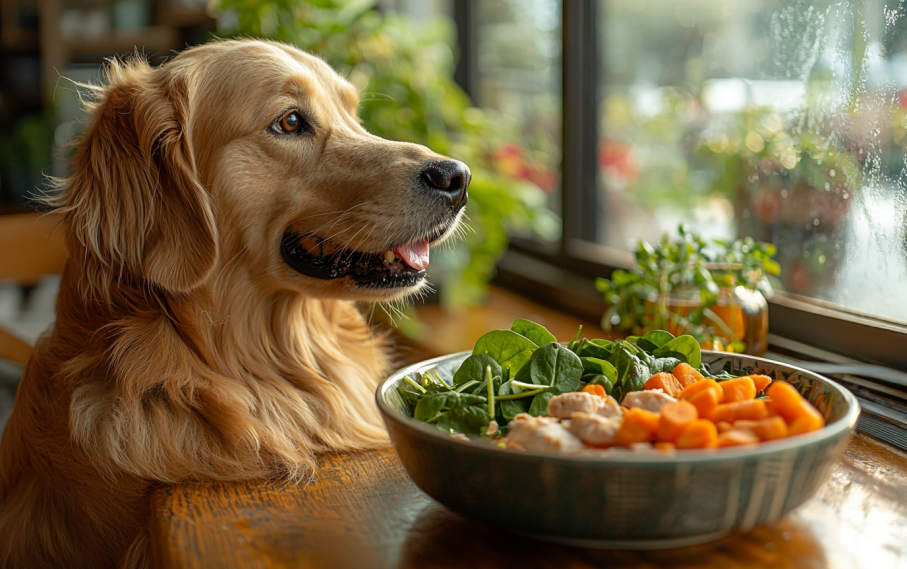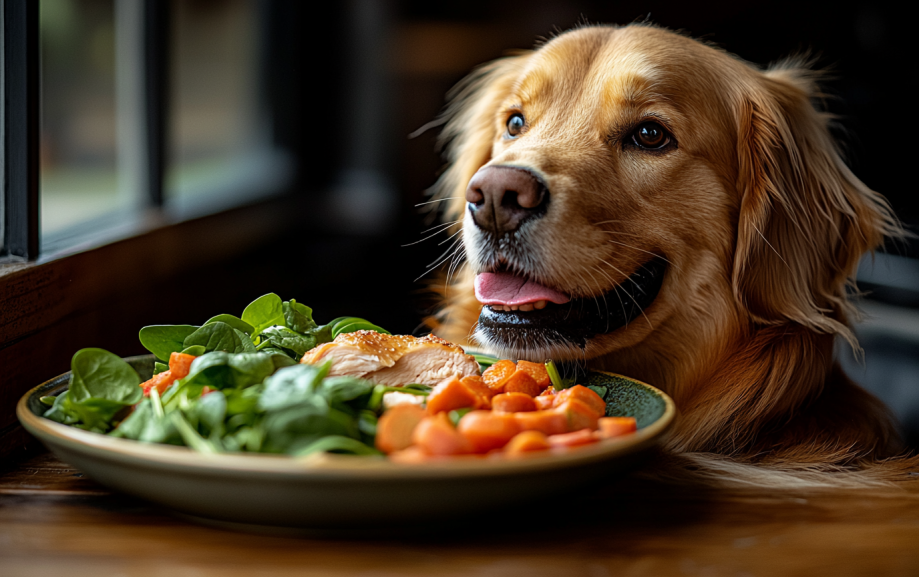Understanding Sensitive Stomachs in Dogs
If you’re a dog owner, you know that your furry friend’s health and happiness depend largely on their diet. But what happens when your dog’s stomach doesn’t seem to agree with their food? Sensitive stomachs are more common in dogs than you might think, and they can manifest as frequent vomiting, diarrhea, gas, or even lack of appetite. For pet owners, this can be worrying and frustrating. The good news is that many high-quality dog foods are formulated specifically for sensitive stomachs, designed to ease digestive issues and provide the nutrients your dog needs without upsetting their system.
In this article, we’ll dive deep into the ingredients you should look for in dog food for sensitive stomachs, the benefits of these specialized diets, and how to choose the best one for your pup. Whether you’re dealing with food allergies, intolerances, or just general digestive upset, this guide will help you make informed choices to ensure your dog thrives.
Common Causes of Sensitive Stomachs in Dogs
A sensitive stomach in dogs can arise for a variety of reasons, and understanding these underlying causes is crucial to finding the right solution. Here are the most common triggers:
Food Allergies and Intolerances
Some dogs are allergic to certain proteins like chicken, beef, or dairy. These allergies can cause chronic digestive issues, skin problems, and even ear infections. Unlike food allergies, which involve the immune system, food intolerances typically cause digestive upset without triggering an immune response. Common culprits include grains, artificial additives, and specific protein sources.
Poor Quality Ingredients
Low-quality dog food often contains fillers, artificial preservatives, and flavorings that can irritate a dog’s stomach. Dogs with sensitive digestive systems may struggle to break down these ingredients, leading to bloating, gas, and discomfort.
Infections or Parasites
In some cases, a sensitive stomach may not be food-related at all. Gastrointestinal infections, parasites like Giardia, or conditions such as Irritable Bowel Disease (IBD) can lead to chronic digestive issues. If your dog is showing severe symptoms, consult your vet to rule out medical problems before changing their diet.
Sudden Diet Changes
Switching your dog’s food too quickly can upset their stomach, even if the new diet is healthier or more suitable. A gradual transition over 7–10 days is crucial to allow their digestive system time to adjust.
Key Ingredients in Dog Food for Sensitive Stomachs

When searching for dog food tailored for sensitive stomachs, the ingredients are the most important factor. High-quality food with the right balance of nutrients can significantly improve your dog’s digestive health. Here are the key components you should look for:
Proteins
Protein is the foundation of any dog’s diet, and for sensitive stomachs, it’s critical to choose proteins that are easy to digest.
- Lean proteins such as turkey, salmon, or lamb are less likely to cause allergic reactions than common proteins like beef or chicken.
- Hydrolyzed protein is a popular option for dogs with allergies, as the protein molecules are broken down to a size where the body no longer recognizes them as allergens.
Carbohydrates
Dogs with sensitive stomachs can benefit from easily digestible carbohydrates, which provide energy without causing digestive distress.
- Sweet potatoes, pumpkin, and brown rice are gentle on the stomach and supply important fiber.
- Avoid corn, wheat, and soy, as these are common allergens and can be hard to digest for many dogs.
Fats
Healthy fats are essential for energy and overall health, but not all fats are created equal when it comes to sensitive stomachs.
- Look for foods that contain omega-3 fatty acids, found in fish oil, flaxseed, and chia seeds. These fats support digestive health and reduce inflammation.
- Avoid high levels of saturated fats, which can be difficult to digest.
Fiber
Fiber plays a key role in digestive health by promoting proper bowel movements and maintaining gut health.
- Pumpkin and oats are great natural sources of fiber that are gentle on sensitive stomachs.
- Prebiotics and probiotics are also beneficial, as they promote a healthy gut microbiome, which can improve digestion and nutrient absorption.
Benefits of Dog Food Formulated for Sensitive Stomachs
Specialized dog food for sensitive stomachs offers numerous benefits that go beyond easing digestive discomfort. Let’s take a look at the primary advantages:
Improved Digestion
Ingredients in sensitive stomach dog food are chosen for their ease of digestion. They help reduce issues like bloating, gas, and diarrhea, allowing your dog to digest food more effectively and absorb nutrients more efficiently.
Fewer Allergic Reactions
Limited ingredient and hypoallergenic diets eliminate common allergens, lowering the risk of triggering an allergic response. This helps dogs with food allergies avoid flare-ups and chronic digestive issues.
Better Skin and Coat Health
A diet rich in omega-3 and omega-6 fatty acids from fish oil or flaxseed can improve the condition of your dog’s skin and coat. This is particularly beneficial for dogs with sensitivities that manifest through skin conditions.
Increased Energy Levels
When your dog’s body is able to digest food more effectively, they’ll feel more energetic and vibrant. Digestive issues can leave dogs feeling sluggish and unwell, but a balanced, specialized diet can restore their energy.
Healthy Weight Maintenance
Dogs with sensitive stomachs often lose weight due to their inability to absorb nutrients properly. With the right food, your dog can maintain a healthy weight and avoid the health risks associated with being underweight.
How to Choose the Best Dog Food for Sensitive Stomachs

Choosing the right dog food can be overwhelming with so many options available. Here are the main factors to consider:
Limited Ingredient Diets (LID)
A limited ingredient diet contains fewer ingredients, which helps reduce the likelihood of triggering a food intolerance or allergy. These diets typically focus on one protein source and one carbohydrate, making it easier to pinpoint what’s causing digestive distress.
Grain-Free Options
While grains aren’t harmful to every dog, many dogs with sensitive stomachs benefit from a grain-free diet. Instead of grains like corn or wheat, these foods often include more digestible carbohydrate sources like sweet potatoes or peas.
Hypoallergenic Formulas
Hypoallergenic dog food is designed to prevent allergic reactions. This type of food uses novel proteins (e.g., venison, duck) or hydrolyzed proteins, which are less likely to cause reactions. If your dog has been diagnosed with a food allergy, a hypoallergenic formula is usually recommended by veterinarians.
Top Dog Food Brands for Sensitive Stomachs
Here are some of the best dog food brands specifically formulated for sensitive stomachs:
Hill’s Science Diet Sensitive Stomach & Skin
Known for its gentle ingredients, this food contains prebiotic fiber, chicken as the main protein, and is free from artificial colors and flavors.
Purina Pro Plan Sensitive Skin & Stomach
This food features salmon as its primary protein and includes probiotics to support digestive health. It’s also rich in omega-3 fatty acids, which support skin health.
Royal Canin Veterinary Diet Gastrointestinal Low Fat
This is a prescription option for dogs with severe gastrointestinal issues. It’s low in fat and uses highly digestible proteins and prebiotics.
Blue Buffalo Basics Limited Ingredient Diet
With limited ingredients and options for grain-free diets, Blue Buffalo is a popular choice for dogs with sensitive stomachs. The primary protein sources include turkey or salmon.
Homemade Dog Food for Sensitive Stomachs: Is It Safe?
Many pet owners wonder if they can make homemade meals for dogs with sensitive stomachs. While homemade diets can be a great option for controlling ingredients, they require careful planning to ensure that all of your dog’s nutritional needs are met. If you’re considering homemade food, consult a vet or a canine nutritionist to ensure you’re providing balanced meals that include the right amounts of protein, carbohydrates, and essential vitamins and minerals.
A simple recipe could include:
- Boiled turkey or chicken (without seasoning)
- Cooked sweet potatoes or brown rice
- Steamed carrots or green beans
- A small amount of pumpkin for fiber
READ ALSO: Healthy homemade dog food recipes
Wet vs. Dry Dog Food: What’s Better for Sensitive Stomachs?

Both wet and dry food can work for dogs with sensitive stomachs, but there are differences that may make one more suitable for your dog:
- Wet food is easier to digest because it contains more moisture, which helps dogs stay hydrated and supports digestive health. It’s a good option for dogs that struggle with chewing or need extra moisture in their diet.
- Dry food is often more convenient and can help maintain dental health by reducing tartar buildup. High-quality dry food with easily digestible ingredients can work just as well for dogs with sensitive stomachs.
Ultimately, the choice between wet and dry food depends on your dog’s individual needs and preferences.
How to Transition Your Dog to a Sensitive Stomach Diet
Switching your dog’s food too quickly can worsen their digestive issues. To ensure a smooth transition, follow this gradual process over 7–10 days:
- Days 1-3: Mix 75% of the old food with 25% of the new food.
- Days 4-6: Mix 50% of the old food with 50% of the new food.
- Days 7-9: Mix 25% of the old food with 75% of the new food.
- Day 10: Transition fully to the new food.
By making the switch gradually, you give your dog’s digestive system time to adjust without overwhelming it.
Conclusion: A Happy, Healthy Dog Starts with the Right Food
If your dog has a sensitive stomach, it doesn’t mean they can’t enjoy delicious and nutritious meals. By understanding the causes of their digestive issues and choosing the right ingredients, you can improve their quality of life. Whether you opt for commercial dog food or homemade meals, prioritize easily digestible proteins, healthy fats, and fiber-rich carbohydrates. With the right diet, your dog will not only feel better but also thrive with renewed energy and vitality.





